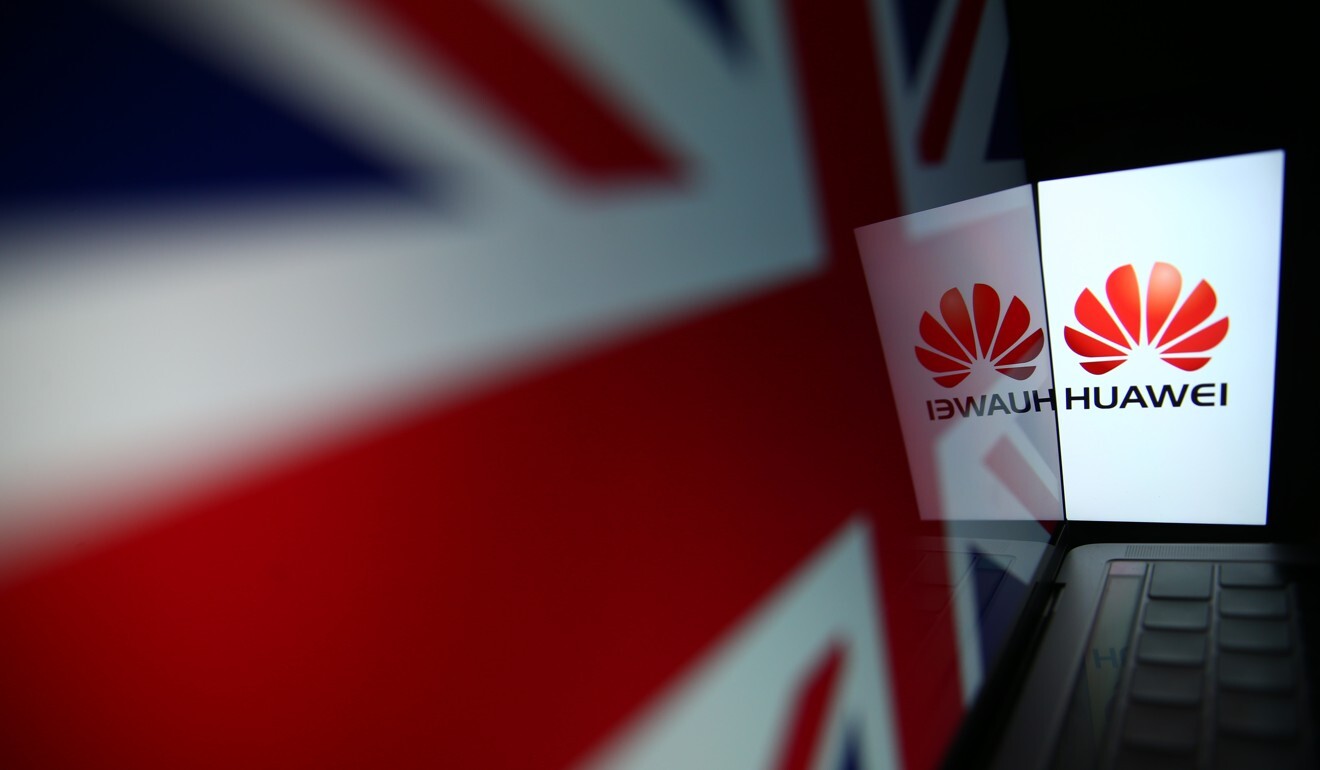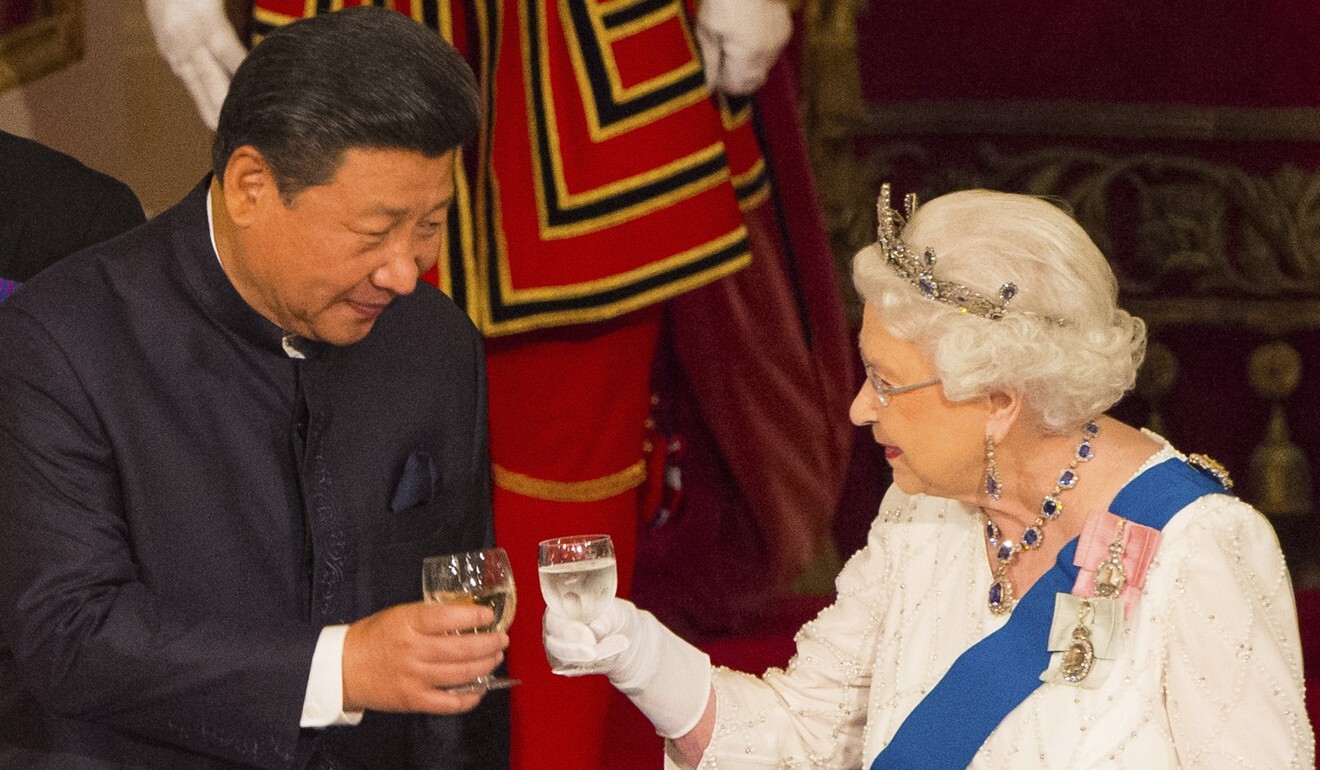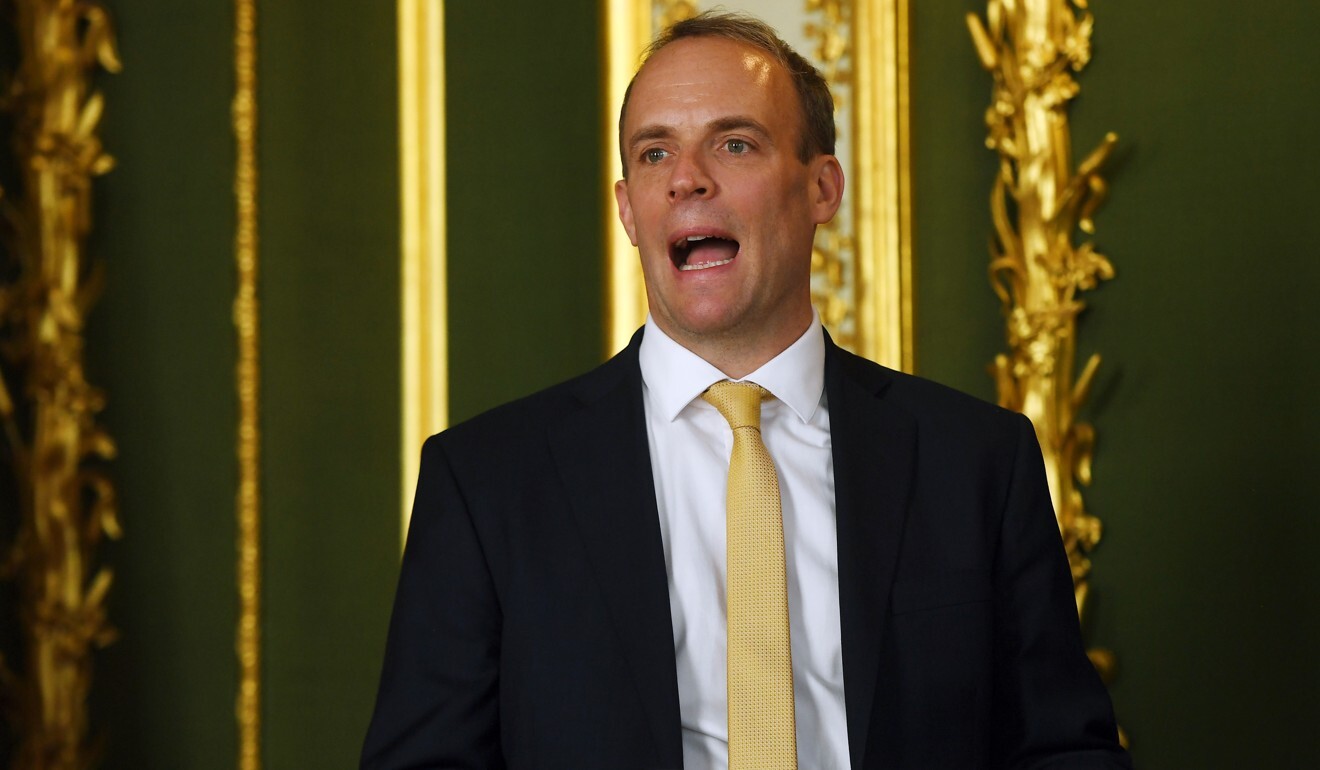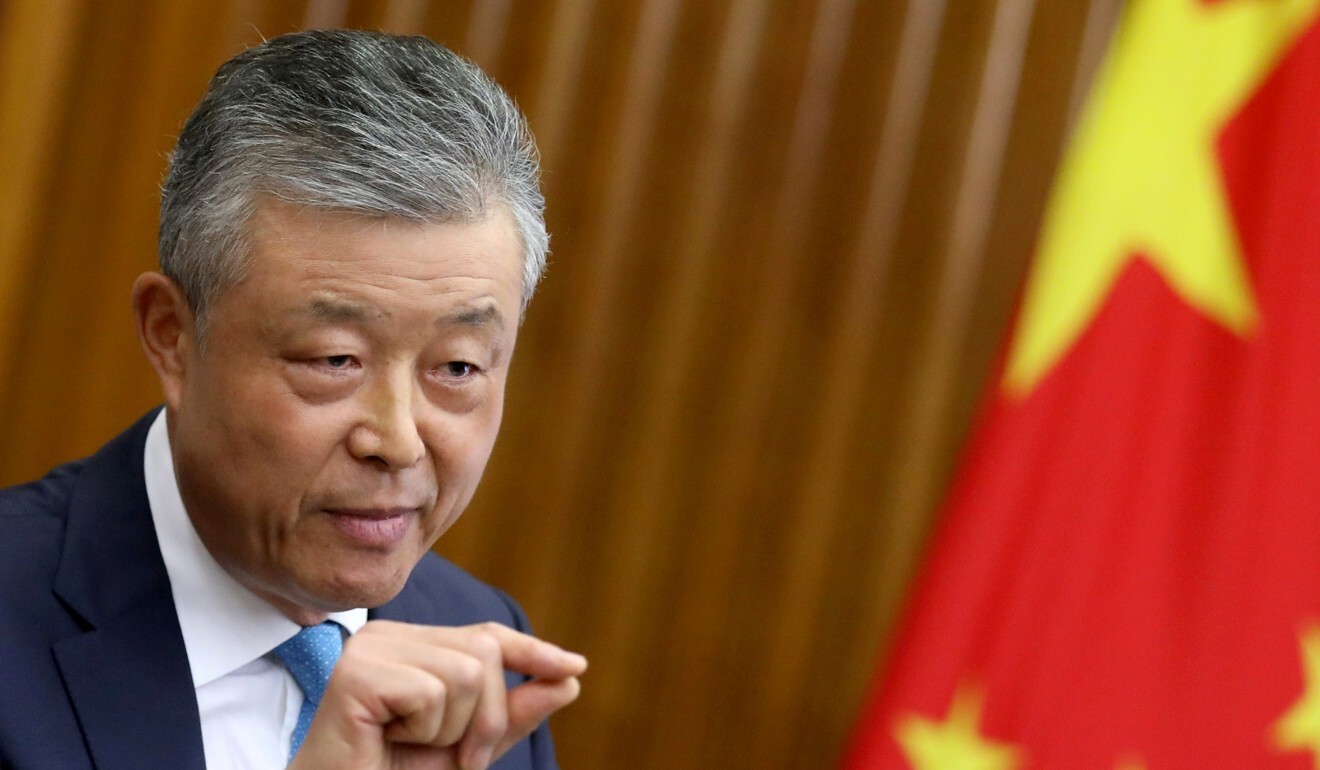
01:54
China hits back at UK claims of forced sterilisations and other human rights abuses against Uygurs

Britain should pursue more “constructive, informed and realistic” engagement with China by expanding its knowledge of the country even as it upholds liberal values at home and overseas, according to a London-based think tank that called for a balance between “complacency and paranoia” in regards to Beijing.
The British government should invest heavily in boosting its “knowledge and experience base”, including language skills, to reap the “mutual benefits” of engagement with China and better understand its “historical, social, economic and geopolitical motivations”, said the report published by the British Foreign Policy Group.
“Only tiny numbers of Britons study the Chinese language, certainly in comparison with the millions learning English in China,” it reads.
“More attention to learning about Chinese language, society, politics, and history – institutionally, commercially, and societally – will be essential to creating a sustainable UK-China relationship.”

01:54
China hits back at UK claims of forced sterilisations and other human rights abuses against Uygurs
The paper – titled “After the Golden Age: Resetting UK-China Engagement” by British Foreign Policy Group director Sophia Gaston and Rana Mitter, director of the University of Oxford’s China Centre – further called on London to better harness British soft power, including its respected educational and media institutions, and pay more attention to the Chinese diaspora, which play “an increasingly important role in perceptions of Britain within China and should be regarded as an extension of the UK’s soft power”.
“Unlike our history with India or the Caribbean, whose memory is kept alive through the Commonwealth and the large diaspora populations, our connection with China is rarely made in British public life,” says the report. “This should change.”
The report noted that according to the 2011 Census, there were 393,141 people of Chinese heritage living in England and Wales, making up about 0.7 per cent of the population. About half of them are between the ages of 18 and 34, reflecting how large numbers of Chinese students immigrate to Britain following their studies. Integration had not been without problems, the report added, pointing to incidents of racism that had risen during the coronavirus pandemic.
“There are concerns that a hardening political stance towards the Chinese Communist Party could bear deeper consequences for the safety and security of the Chinese people in the UK, and considerable political thought will need to be given to ensuring that this does not happen,” the authors said.
While describing China’s authoritarian behaviour as “patently clear”, they also warned that viewing Beijing as being committed to a “zero-sum game towards world domination” lacks historical understanding of its domestic security concerns and risks becoming a self-fulfilling prophecy.
“Another approach must be identified, one which respects the genuine potential risks China poses to the UK’s values and security interests and acknowledges the troubled public mood towards the authoritarian state, and which also enables room for constructive engagement on an economic level and towards shared global challenges – such as climate change and international trade,” they wrote.
The report, which was released on Wednesday, highlights biomedicine, space, fintech and the life sciences as among the promising areas for collaboration with China, while noting the need for “firm measures” to safeguard academic freedoms and protect intellectual property.
“The UK narrative on China needs to be confident, friendly and firm: a confidence based on deep knowledge and nuanced judgment about what the UK can and cannot accept about China, a friendship that understands its boundaries, and firm in a principled and consistent manner,” the report says.

The authors also call on London to identify the values Britain should promote as a “liberal actor” on the world stage, recommending a special focus on supporting British media on the mainland and in Hong Kong and leaving “no room for ambiguity about Britain’s leading role in the defence of media freedoms, and free speech more broadly”.
The British Foreign Policy Group, which was founded with funding from Strategy International – a UK-based holding company for “strategic business development” – describes itself as an independent and non-partisan think tank, refusing money from sources working on behalf of “non-democratic regimes or against the democratic interests of the United Kingdom”.
Peter Gries, director of the Manchester China Institute at the University of Manchester, said Britain would benefit from boosting its China expertise.
“Lacking that knowledge and expertise, the UK’s China policy may become more volatile, wavering between ideologically driven extremes of panda-hugging and dragon-bashing,” he said. “This would undermine the national interest in a stable relationship that defends both British values, and its commercial and security interests.”

But Andreas Fulda, a senior fellow at University of Nottingham’s Asia Institute, expressed scepticism, saying China’s Communist Party and its President Xi Jinping “have their own political agenda, which they are implementing, regardless of the positions of Western governments”.
Fulda, the author of The Struggle for Democracy in Mainland China, Taiwan and Hong Kong: Sharp Power and Its Discontents, said increased cultural understanding, while positive, would do little to change the direction of Beijing.
“The sad truth is that no matter how much you learn Mandarin Chinese or immerse yourself in Chinese society and culture, once the Chinese Communist Party designates you as an ‘enemy of the people,’ that’s what you are – no matter what you think, no matter how much love and affection you have for China, no matter how well you know the country and its people,” he said.
The British Foreign Policy Group paper comes amid a sharp deterioration in China-UK relations over issues including Beijing’s tightening control over Hong Kong and London’s decision to ban Huawei from its burgeoning 5G network.

On Thursday, Britain’s Foreign Secretary Dominic Raab accused the Hong Kong government of undermining the “one country, two systems” principle governing the former British colony after authorities disqualified 12 pro-democracy candidates for the Legislative Council elections.
Raab said it was “clear” the candidates had been delisted over their political views, after election officials cited the pro-democracy camp’s opposition to the city’s controversial national security law, plans to vote down government legislation, and calls on foreign governments to sanction Beijing and Hong Kong. On Friday, the Hong Kong government announced the elections would be postponed, citing the city’s rising number of coronavirus cases.
Chinese Ambassador to Britain Liu Xiaoming said on Thursday London had “seriously poisoned” relations by interfering in China’s internal affairs.
“China has never interfered in the internal affairs of other countries, including the UK, and we ask the same from other countries,” Liu said, adding that Beijing remained committed to developing positive relations with Britain.

“A sound and stable China-UK relationship is not only in the fundamental interests of the peoples of the two countries, but also conducive to world peace and prosperity.”
In an opinion survey carried out by British Foreign Policy Group in May, 83 per cent of Britons said they did not trust China to act responsibly in the world, up 4 percentage points since January. The results put Beijing in similar company to Iran and North Korea, two of the world’s most diplomatically isolated states, which had the trust of 85 per cent and 88 per cent of respondents, respectively.